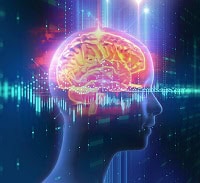What Will Drug Rehab Be Like in 100 Years?
Posted on May 4, 2018
Drug Rehab: Predicting the Future
by Thaddeus Camlin, Psy.D.
I’m told people want to know what drug rehab will be like in 100 years. So, this week let’s put on our Doc Brown suit, make sure Einstein has a doggy sitter, secure dangerous amounts of plutonium, and fire up our flux capacitor so we can send our favorite McFly back to the future of rehab.
As we travel into the hypothetical it would be folly to ignore the major mistakes that other artists seem to inevitably make when they conduct their best Nostradamus impersonations. In the 1980’s a handful of popular films depicted what our present day would be like (e.g. Back to the Future, Terminator, Blade Runner). The films from the 1980’s that predicted the future that is today all grossly overshot the technological advances o...
full story










